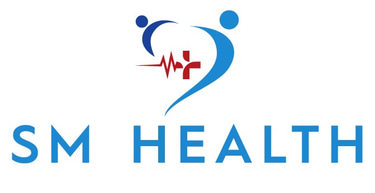Unlocking Improved Patient Outcomes: The Impact of Chronic Care Management
Discover the key strategies to drive business initiatives and improve patient outcomes through our chronic care management services.
In the ever-evolving landscape of healthcare, the emphasis on patient outcomes has become a central focus. Chronic care management (CCM) stands out as a pivotal approach in fostering better patient outcomes, providing a holistic and proactive method of addressing long-term health conditions. This blog post explores the ways in which chronic care management plays a crucial role in enhancing patient well-being.
Understanding Chronic Care Management:
Chronic care management is a comprehensive healthcare strategy designed to assist individuals with chronic conditions in managing their health effectively. By integrating a multidisciplinary approach, CCM aims to improve patient outcomes through personalized care plans, continuous monitoring, and proactive interventions.
Key Benefits of Chronic Care Management:
Proactive Health Management: CCM emphasizes preventive care and proactive health management. Healthcare providers work collaboratively with patients to develop personalized care plans that address their unique needs and challenges. This proactive approach helps in preventing exacerbations of chronic conditions and reduces the likelihood of emergency hospital visits.
Continuous Monitoring: Utilizing advanced technologies and regular check-ins, CCM allows healthcare providers to monitor patients' health status continuously. This real-time data enables early detection of potential issues, facilitating timely interventions and adjustments to the care plan as needed.
Enhanced Communication and Patient Engagement: Chronic care management fosters improved communication between healthcare providers and patients. Regular follow-ups and consultations create a supportive environment, encouraging patients to actively participate in managing their health. This increased engagement contributes to better adherence to treatment plans and lifestyle modifications.
Coordination of Care: CCM promotes coordination among various healthcare professionals involved in a patient's care, including primary care physicians, specialists, and support staff. This collaboration ensures a seamless flow of information, preventing gaps in care and enhancing the overall quality of healthcare delivery.
Improved Medication Management: Medication adherence is a critical aspect of managing chronic conditions. CCM emphasizes proper medication management through education, reminders, and close monitoring. Ensuring that patients take their medications as prescribed significantly contributes to better health outcomes.
Chronic care management emerges as a transformative approach in healthcare, offering a paradigm shift towards proactive, patient-centered care. By focusing on continuous monitoring, personalized care plans, and enhanced communication, CCM plays a pivotal role in improving patient outcomes for those dealing with chronic conditions. As the healthcare landscape continues to evolve, the integration of chronic care management stands as a beacon of hope for individuals seeking not just treatment, but a comprehensive and effective approach to managing their health in the long run.


